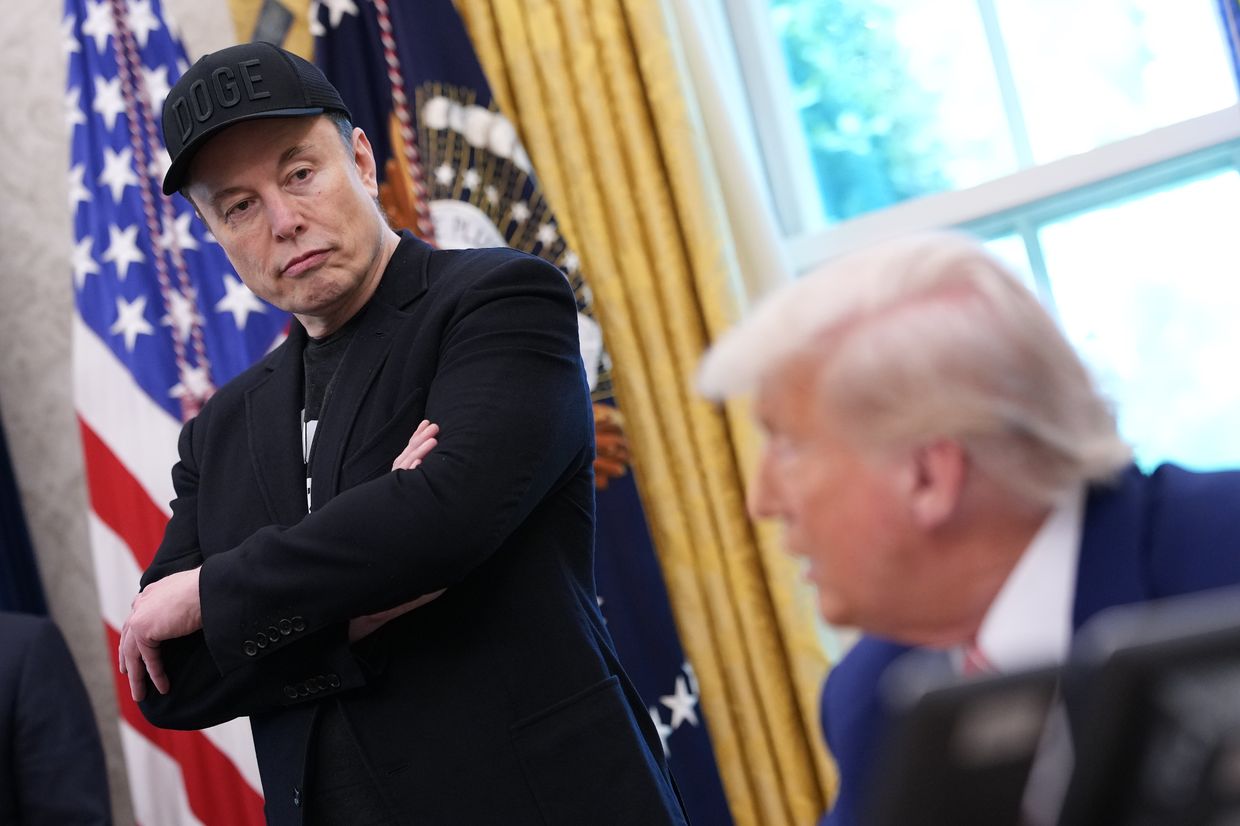
Ramona ShelburneJun 10, 2025, 10:00 AM ET
- Senior writer for ESPN.com
- Spent seven years at the Los Angeles Daily News
BEFORE TYRESE HALIBURTON'S game-winning shot against the Oklahoma City Thunder in Game 1 of these NBA Finals, and his shot against the New York Knicks in Game 1 of the Eastern Conference finals, there was another improbable game-winner that might have been even more important to the Indiana Pacers' run.
It was March 11, and the Pacers were fighting for playoff position along with a handful of teams in the middle of the East. This game against the Milwaukee Bucks would prove pivotal to earning home-court advantage in the first round.
With 3.9 seconds remaining and the Pacers trailing by three, head coach Rick Carlisle turned to one of his lead assistant coaches.
He told her it was time to bust out one of the special out-of-bounds plays she'd come up with. This play, like the woman who drew it up, was the product of a unique basketball journey.
Pacers assistant Jenny Boucek first had the idea for the play because she had played semipro flag football while she was an assistant coach with the WNBA's Miami Sol from 2000 to 2002.
She refined it further when she was the head coach of the Seattle Storm from 2015 to 2017 and collaborated with Hall of Fame point guard Sue Bird.
And now here was Carlisle, turning to her to run it in one of the most critical moments of the Pacers' season.
The concept is simple. With the in-bounder across half court, the four others line up behind the half-court line in what looks like a four-receiver set. Then each player runs their route, going in various curls and post patterns toward the basket. Then the in-bounder quickly finds the open man, knowing the defense will be on its heels somewhere.
That's exactly what happened when the Pacers ran Boucek's play against the Bucks. Andrew Nembhard played the role of in-bounder/quarterback in the four-wide set. Haliburton, lined up on his far side, curled behind his three teammates and ran toward the near corner, where he took the pass and drained an off-balance 3 while drawing a foul.
That four-point play was the beginning of what has become a series of magical moments for Haliburton this postseason. But it was also one for Boucek.
"That was a pretty pivotal moment in our season," Carlisle told ESPN. "That's why, to me, she's on a path to possibly be the first female head coach in the NBA. Not only because of her knowledge but because of her ability to build relationships, her ability to listen and her humility.
"I just think with the level of responsibility that she has with us, the league is taking notice."
That level of responsibility was on full display again in the Pacers' win over the Thunder in Game 1 of these NBA Finals.
After Haliburton hit his latest game-winning shot with 0.3 seconds remaining, ABC's cameras cut to the Pacers' huddle where Boucek, not Carlisle, was in charge of setting the defense for the final play.
Indiana covered everything, including Alex Caruso's inbound lob at the rim, which flew out of bounds to seal yet another comeback win for the Pacers.
"Rick said to me, 'I need this to be your role this year,'" Boucek told ESPN. "And I don't want to let him down, I don't want to let the team down. But sometimes I feel like he's throwing me in the deep end and saying, 'You're either going to sink or swim. But I believe in you.'
"At times that's more than I believe in myself. But when somebody believes in you, they give you an assignment, and you do your best to fulfill that because you're part of a team. And you want to do your small part."
That belief has fueled an extraordinary professional story and an even more extraordinary personal one -- from a player whose dreams were shattered, to a coach with dreams beyond the floor that threatened them.
LIKE MANY ASSISTANT coaches, Boucek can't sleep after a game until she has rewatched the entire thing on film and cut together tape to show the team in the morning. But unlike any other assistant coach in the NBA, Boucek has an additional overnight task: what activities to do with her 6-year-old daughter, Rylie, who travels with her.
The team pays for Rylie and another adult -- usually one of Boucek's parents or friends -- to travel and stay with her on any road trip that is more than three nights.
Carlisle, who marvels at Boucek's ability to juggle both roles, tried to set her up for success in running the team's defense by hiring former Chicago Bulls head coach Jim Boylen as a defensive consultant.
"She's got great convictions, great experience and knowledge," Boylen told ESPN, "but she has this curiosity and this ability to learn and then teach what she learns. She's an elite communicator, elite teacher.
"And I felt in my heart -- and this is a spiritual thing for me because I have two daughters and I was raised by a strong woman -- that one of the reasons that I was meant to be here and be part of this was to support her on being a single mom with a young child running a defense in the NBA."
The Pacers have improved dramatically on defense, going from 24th in 2023-24 to 14th this season. They had a top-10 defense from Jan. 1 through the end of the regular season, and have improved upon that by five points per 100 possessions in the playoffs compared with last postseason.
Forward Pascal Siakam, a three-time All-Star, credits Boucek for helping him quickly integrate into the Pacers' system.
"Jenny has been awesome," he said. "Coming to Indy, and having a different system, I really had to adapt to a lot of things, and she's been really helpful. She gives me great insights on what we want to do, and what we want to accomplish as a team."
Guard Andrew Nembhard, whose defensive prowess has been heralded throughout the postseason, agrees.
"Her knowledge of the game," he said, "is one of the best I've been around."
THERE WAS A time when Boucek never believed any of this would be possible. Actually, there were hundreds of times.
After she finished playing at the University of Virginia, Boucek thought her basketball career was done.
The WNBA hadn't launched yet, and she'd studied to be a doctor like so many others in her family. But it just so happened she needed a fifth year in Charlottesville to finish her double major before medical school.
That happened to be Year 1 of the WNBA. She'd been away from the game for eight months and had already grieved the end of her identity as a basketball player. But she read one day during that last year that there was going to be an open tryout nearby, and decided she'd regret it if she didn't at least try.
She made it and signed with the Cleveland Rockers.
"I saw the women in the stands -- grown women in tears at our games," Boucek said. "Representing our game, and our league representing all the noes that they had experienced in their lifetime because of their gender. And this represented a massive yes.
"And I was like, 'This league is important. This league matters.'"
Even after she suffered a career-ending injury in 1998, Boucek still felt a calling.
Ron Rothstein, who was an assistant coach with Mike Fratello's Cleveland Cavaliers, used to come to Rockers games and practices on his off days. He loved the way the women played the game, he said, loved their passion and toughness, and he admired a defensive specialist by the name of Jenny Boucek.
A few years later, after Fratello's staff was fired by the Cavs, Rothstein got a call from Miami Heat president Pat Riley asking if he had interest in coaching the new WNBA team in Miami. It was an easy decision -- but he also knew his first task would determine his success in doing so.
"I knew I had to hire women because I'd never coached women," Rothstein said.
He remembered Boucek from her time with the Rockers, and also brought in Marynell Meadors from the Charlotte Sting.
"I'm telling you, I was flying blind. But these two women were our guides. And I learned to trust them because they were smart. They were workaholics. They were just terrific. I couldn't have done better."
Boucek says she couldn't have done better, either.
"Ron is known as one of the best teachers to go through the NBA," Boucek said. "That's why Riley hired him to mentor [Erik] Spoelstra. I'm so blessed that he took me under his wing and challenged me and poured into me.
"He opened my eyes and brain to the science of the game, and it was so stimulating."
Boucek talks about the science and systems of the game often. It's how she sees the world.
Her mother's side of the family has backgrounds in neurology and psychiatry. Her maternal grandfather, Robert Heath, was a renowned psychiatrist who, she said, pioneered the practice of deep brain stimulation in the 1950s.
Her father's side has a background in pediatric cardiology. Her father and uncle both specialized in pediatric heart transplants. Her uncle, Mark Boucek, was part of the team that performed a successful but controversial baboon heart transplant on a 12-day-old infant named Baby Fae, which led directly to baby-to-baby heart transplant surgeries.
"My lineage has passions for systematic problem-solving and innovation, as well as a love for people and helping them," she said. "Understanding them. But also lots of researchers who are wired to challenge the status quo."
BOUCEK IS PROUD of her family's accomplishments and journey. And she believes they have inspired her journey as well.
She didn't set out to be the first single mother on an NBA coaching staff, nor to potentially become the first female head coach in the league. But now that she is on this path, she has taken a decidedly scientific approach to how to pull it all off.
"I've studied a lot on attachment styles and the psychology of relationships," she said. "And what, as the primary caregiver in your baby's life, they need from you in years zero to 1, zero to 2, zero to 3, zero to 4, zero to 5.
"And the conversations have been ongoing with the organizations and Rick -- about like, 'I think I can do this now. I think I can do that now.'
"He's been right there like, 'OK, well, as soon as you're ready for that, we're going to put you over here in this role.' He's promoted me along, way outside of my comfort zone, but also with all of our conversations being very honest about, 'Does that fit with what I need to be as a mom to my daughter at this stage?'"
Boucek is comfortable having those conversations now, but it wasn't always that way.
She hid her pregnancy while she was on the Sacramento Kings' staff in 2017-18, telling then-Kings coach Dave Joerger only after they played a tennis match in which she worried that her heart rate was getting above the level that was safe for a pregnant woman of advanced maternal age.
Joerger was supportive of the pregnancy, Boucek said, but agreed to her request to keep it a secret from the rest of the staff and team.
"I didn't want anybody to know because I didn't want the coaches to treat me different, you know, or the players to not want to hurt me, or them to not want me to travel," she said. "I thought I might have to make a choice. As women, a lot of times we do.
"Are we going to be able to do this and be a great mom or not? A lot of women unfortunately have to make that choice when they're looking up the career path. 'If I start to feel like I want to have a family, can I keep going? Or do I need to forfeit or just stay in a certain role along the way?'"
Joerger was one of the first people who asked Boucek why she couldn't do both.
"I hired Jenny because I really respected her point of view and her knowledge," Joerger said. "She just has a great outlook and attitude. The players gravitate to her. You can tell how much they respect her."
But mentally, Boucek was still making peace with the idea that it might not be possible.
"I always wanted to be a mom," she said. "I was busy. I was active. I was traveling the world, coaching all over the world, visiting players all over the world. It wasn't until I got into my 40s, when I was the head coach of the Seattle Storm, where I kind of looked down at the biological clock and met with a fertility specialist, who said if I wanted to carry my own child I might need to start thinking about it. I was always hoping to find that perfect person to have a kid with, and family and all that.
"So I started praying. Like, 'Would I, could I, should I do this on my own?' And I found peace with it. I had to grieve the loss of my dream of family -- the way that I had dreamed it. But I was really certain that I wanted to at least try to be a mom."
That set off another series of questions. "Could this cost me a future relationship? Could this cost me my career? People might judge this. Because it's just not something that was being done. But at the end of the day, it was like, whatever I lose -- If I lost everything, if it cost me every penny -- I had to try."
What she found, once she decided to risk everything to be a mother, was a group of friends and coaches who supported her and provided her with what she needed to be great in both roles.
"I can't put into words how much I respect her," Pacers guard T.J. McConnell said. "She's a single mom doing this. It's not easy, and she's breaking barriers in this sport. She's such a good coach. We love having her. We're lucky to have her."
And now she's at the front of the bench of a team vying for an NBA title.
"I've been with eight teams. I've been in the Finals four times," Boylen said. "This woman can coach. She can teach. She can communicate. She's tough -- and she's a mom. It's F'ing powerful."
.png)
 German (DE)
German (DE)  English (US)
English (US)  Spanish (ES)
Spanish (ES)  French (FR)
French (FR)  Hindi (IN)
Hindi (IN)  Italian (IT)
Italian (IT)  Russian (RU)
Russian (RU)  1 day ago
5
1 day ago
5







Comments